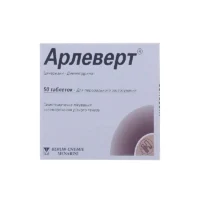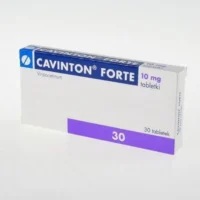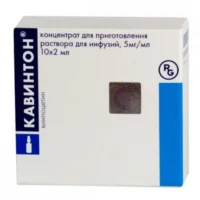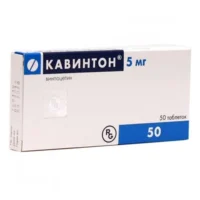Description
Sermion (Nicergoline) Lyophilisate for Solution for Injection 4 mg. 4 ml. Vials №4 with Solvent
Ingredients:
- Each vial contains 4 mg of nicergoline as the active ingredient.
- Other ingredients include lyophilisate and solvent components.
Dosage:
The recommended dosage is determined by a healthcare professional based on individual patient needs. It is typically administered via injection as directed.
Indications:
Sermion is indicated for the treatment of cognitive disorders of vascular origin. It helps improve blood flow to the brain, potentially enhancing cognitive function.
Contraindications:
Do not use Sermion if you are allergic to nicergoline or any of the other ingredients. It is important to consult with a healthcare provider before starting this medication.
Directions:
Follow the instructions provided by your healthcare provider for the correct administration of Sermion. It is typically given as an injection and should not be self-administered without proper training.
Scientific Evidence:
Nicergoline acts as a vasodilator, improving blood flow in the brain by dilating blood vessels. This mechanism of action helps enhance oxygen and nutrient delivery to brain cells, potentially improving cognitive function.
Additional Information:
It is important to note that Sermion should be used as part of a comprehensive treatment plan for cognitive disorders under the supervision of a healthcare professional. While individual responses to the medication may vary, it is essential to adhere to the prescribed dosage and follow-up appointments for optimal outcomes.
- Nicergoline has been studied for its effects on cognitive function and cerebral blood flow.
- Research published in the journal Clinical Drug Investigation demonstrated the efficacy of nicergoline in improving cognitive performance in patients with mild to moderate cognitive impairment.
- A meta-analysis published in CNS Drugs highlighted the potential benefits of nicergoline in enhancing cerebral blood flow, crucial for brain function.
Clinical trials have shown promising results regarding the efficacy of nicergoline in the treatment of cognitive disorders. A study published in International Clinical Psychopharmacology reported significant improvements in cognitive function and overall clinical status in patients receiving nicergoline compared to placebo.





